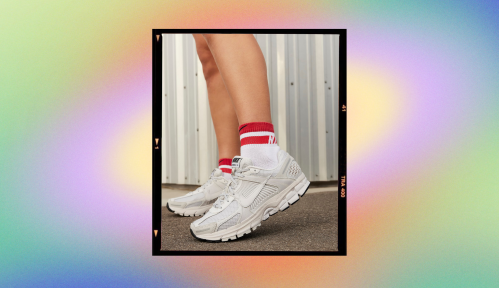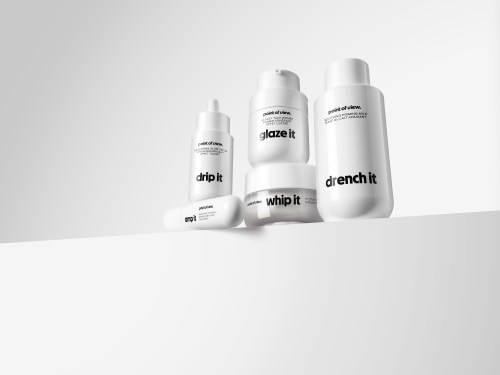If you’re like me, you’d be hard-pressed to find a white piece of clothing that you haven’t stained with food or coffee. But, at least in these cases, you know the cause. Then there are the more mysterious stains that seem to come from some rogue culprit.
Turns out, that might be your sunscreen. And different ingredients not only interact differently with the sun, they also have different effects on light versus dark clothing. (BTW, if you had no idea that there were, in fact, different sunscreen ingredients, the EWG’s 2018 guide to sunscreens hit today to help you sort through everything there is to know.)
In a new study published in the Journal of the American Academy of Dermatology, researchers tested a bunch of sunscreens for their ability to stain dark and light clothing. Though an SPF’s ability to stain doesn’t affect its ability to protect you from harmful rays, it can still make for a pretty annoying laundry day. But don’t worry: We tapped cosmetic chemist Stephen Alain Ko and Dr. Jessica Zinna, a senior scientist with Tide, to help you get rid of those irksome stains once and for all.
Why sunscreen stains your clothes
“Sunscreen is a combination stain that contains an oily and a rusty component,” says Dr. Zinna. “Oily stains are difficult to remove, so you can try to avoid them by applying the sunscreen onto your skin and allowing it to dry before putting clothes on. However, it’s the orange, rusty stains that are harder to remove.” She explains that these stains come as a result of the chemical reaction that occurs when hard water mixes with sunscreens containing avobenzone (a common ingredient in chemical formulas). “The severity of these rust stains not only depends on the mineral profile of your water supply but also on the fiber content of the garment,” she adds. Synthetic fabrics like polyester, for example, are more prone to retaining stains than natural ones, like cotton. where synthetics are more prone to retaining the stain than natural fibers, like cotton.
Certain sunscreen filters are more prone to causing stains on either dark or light clothes. “[Chemical] sunscreen filters like avobenzone and oxybenzone are oily substances which are white to gently yellow,” says Ko “One theory as to why they stain is that they can form complexes with alkaline materials or metal ions like iron. These complexes absorb strongly in the yellow and orange wavelengths.”
On dark clothes, the culprit’s usually physical-blockers like titanium dioxide and zinc oxide, according to Ko. “They’re physical particles and absorb visible light strongly, so they appear white,” he says.
This Parisian Skincare Brand Is Launching in the United States for the First Time—Here’s What a Derm Wants You to Know

We’re Calling It: Cleansing Balms Are the Face Wash of the Future—Here Are 3 to Add to Your Cart

This Is the One Product That Scarlett Johansson Always Keeps in Her Purse and on Her Bedside Table

How to remove sunscreen stains
On dark clothes
- 1.
On light clothes
To get rid of sunscreen stains on light clothes, use either the same method above, or use an iron-chelating ingredient combination like citric acid and vinegar. Ko suggests using an iron chelator, like citric acid along with a source of acid, such as vinegar. One other thing to keep in mind? “If you’re on the go and encounter a sunscreen stain, you can prevent the stain from setting in by brushing off any excess sunscreen from the garment before rinsing under running water,” says Dr. Zinna. “The higher the water pressure, the easier it will be to remove.”
Of course, now that you know how to remove the stains—should they happen—there’s no excuse not to slather on the SPF on the reg.
Here’s your 2018 dermatologist guide to sunscreens. Just be sure to watch out for vitamin A in your SPF.
Sign Up for Our Daily Newsletter
Get all the latest in wellness, trends, food, fitness, beauty, and more delivered right to your inbox.
Got it, you've been added to our email list.








